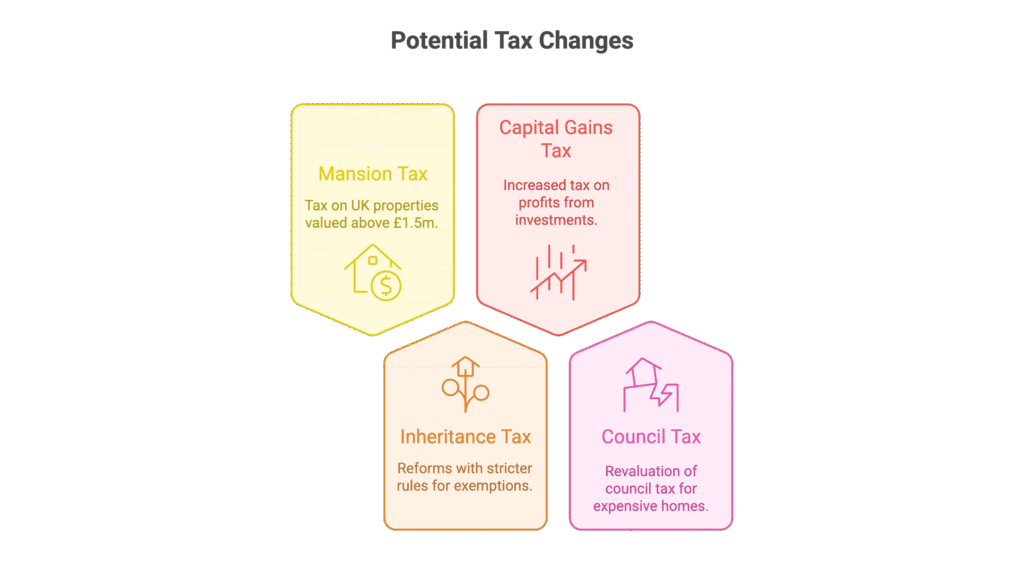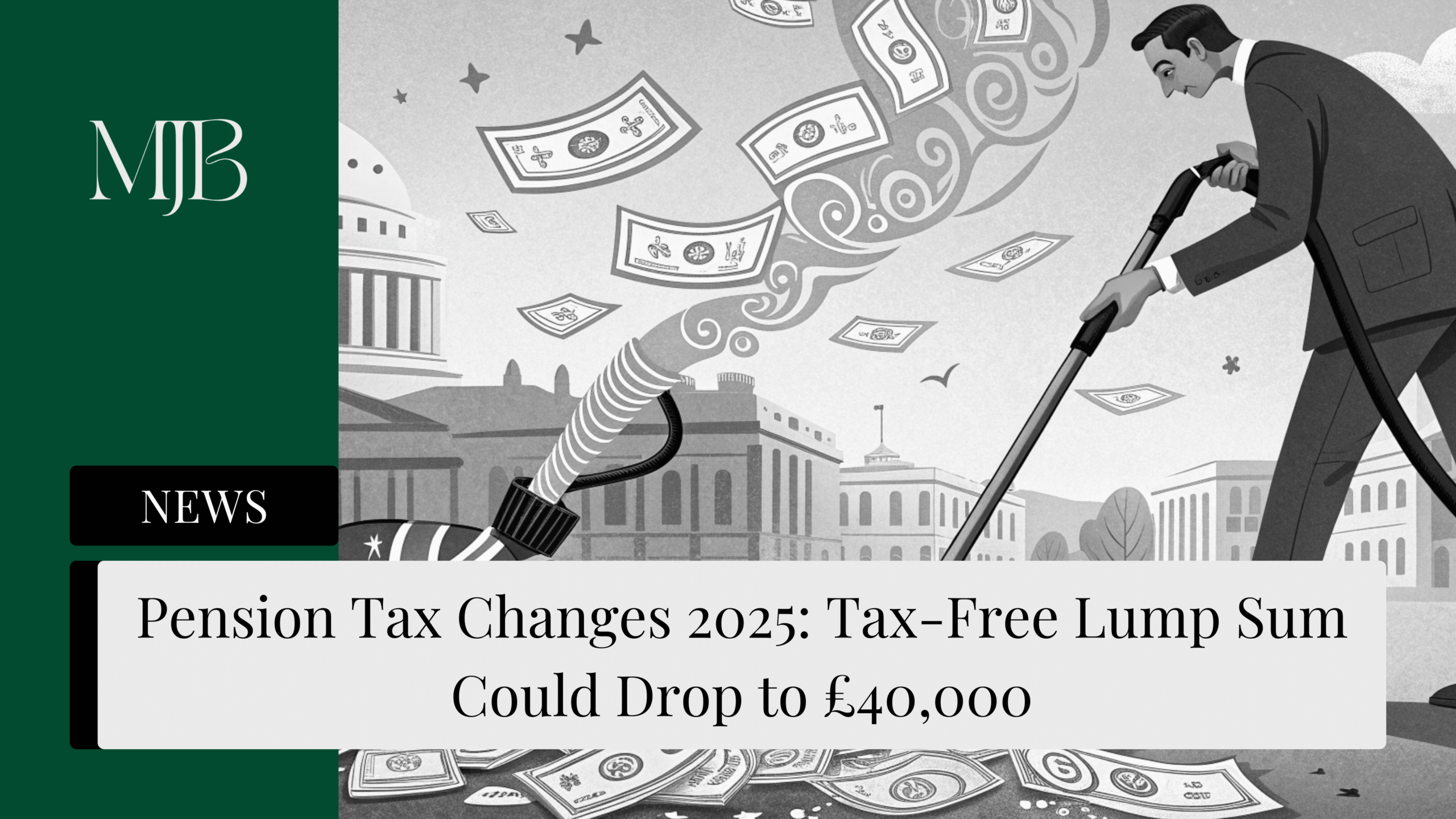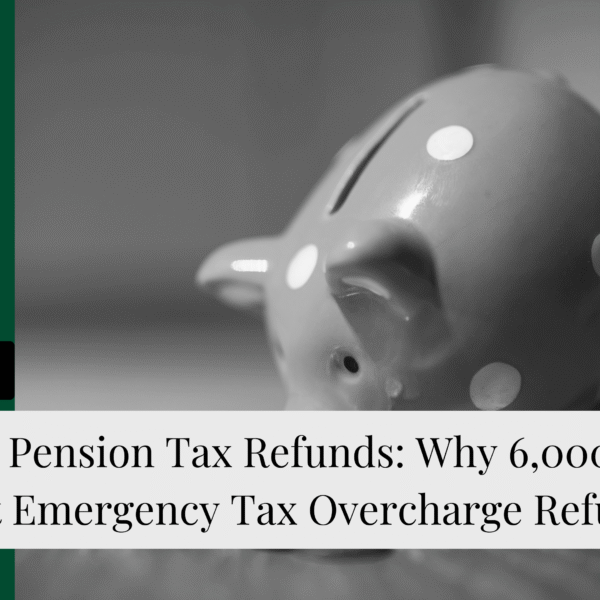Planning to withdraw your tax-free pension lump sum? Chancellor Rachel Reeves is reportedly considering slashing the tax-free pension withdrawal limit from £268,000 to just £40,000 as part of Labour’s autumn budget 2025. This pension tax change could affect millions of UK savers trying to plug a £50bn fiscal black hole.
The proposed pension lump sum cuts would reduce your tax-free allowance by 85% – potentially costing retirees thousands in additional tax bills.
Here’s everything you need to know about Labour’s potential pension tax raid and how these UK pension changes could impact your retirement planning.
Why UK Pension Tax Rules Are Changing in 2025
Labour’s autumn budget faces unprecedented pressure to raise revenue without breaking manifesto promises. Current pension tax relief allows you to withdraw 25% of your pension pot tax-free, up to £268,000 – but this generous allowance is now under threat.
The proposed pension lump sum reduction to £40,000 would generate over £2bn for the Treasury. For context, someone with a £200,000 pension pot currently withdraws £50,000 tax-free. Under the new rules, they’d only get £40,000 tax-free, paying income tax on the additional £10,000.
This isn’t just about immediate revenue – it’s about Labour’s fiscal credibility and meeting strict borrowing rules by 2029-30.
What Other Tax Changes Are Coming?
The pension tax changes aren’t happening in isolation. Rachel Reeves is considering multiple tax rises for the October 2024 budget, including:
- Mansion tax on UK properties worth over £1.5m
- Inheritance tax reforms with tighter exemption rules
- Capital gains tax increases on investment profits
- Council tax revaluation for higher-value homes
These measures reflect Labour’s challenge: they promised not to increase income tax, National Insurance, or VAT on “working people” during the election campaign. Pension tax changes and wealth taxes offer alternative revenue streams without technically breaking those manifesto commitments.

The £50bn Budget Reality: Why These Changes Matter
Economic forecasts from the National Institute of Economic and Social Research paint a stark picture. The UK government needs to raise £50bn in additional tax revenue to meet its fiscal rules by 2029-30, while maintaining just £9.9bn in fiscal headroom.
Professor Stephen Millard, NIESR’s deputy director, warns that “fiddling at the edges is not going to do it” – indicating that significant tax rises are inevitable across multiple areas.
The scale of this challenge explains why pension tax relief, currently costing the Treasury around £40bn annually, has become such an attractive target for reform. Even modest changes to pension tax benefits could generate billions in additional revenue.
How Pension Lump Sum Changes Could Affect You
If you’re approaching retirement or already accessing your pension, these potential changes deserve serious consideration. Here’s what different scenarios might look like:
Current rules: £200k pension = £50k tax-free + £150k taxable
Proposed rules: £200k pension = £40k tax-free + £160k taxable
The additional £10k would be taxed at your marginal rate – potentially 20%, 40%, or 45% depending on your total income. For higher-rate taxpayers, that’s an extra £4,000 in tax on the same withdrawal.
Key consideration: If you’re eligible to access your pension now (age 55+, rising to 57 from 2028), you might want to review your withdrawal strategy before any autumn budget changes take effect.
The Bottom Line on UK Pension Tax Changes
While the Treasury describes pension tax reforms as “unlikely,” the pressure to raise revenue makes some form of pension tax changes increasingly probable. The autumn budget 2025 will reveal whether these pension lump sum cuts become reality.
For now, the best approach is to understand your current pension tax benefits and consider whether early withdrawal makes sense for your situation.
FAQ
Q1: When might these pension changes take effect?
A: The autumn budget will likely reveal the timeline. If approved, changes could happen relatively quickly – possibly within the next tax year.
Q2: Will this affect all pension types?
A: The proposed cuts would primarily impact defined contribution pensions and SIPPs. Final salary pensions work differently and may not be directly affected.
Q3: Can I withdraw my tax-free lump sum before any changes?
A: You typically need to be 55+ (rising to 57 from 2028) to access pension funds. If you’re eligible, it might be worth considering your options sooner rather than later.
Q4: How does this compare to other countries’ pension tax rules?
A: The UK’s current 25% tax-free allowance is actually quite generous internationally. Many countries offer lower percentages or smaller caps.
Q5: What alternatives might the government consider instead?
A: Other options include hiking capital gains tax, reforming council tax bands, or introducing new wealth taxes – though all come with their own political challenges.
DISCLAIMER
Effective Date: 15th July 2025
The information provided on this website is for informational and educational purposes only and reflects the personal opinions of the author(s). It is not intended as financial, investment, tax, or legal advice.
We are not certified financial advisers. None of the content on this website constitutes a recommendation to buy, sell, or hold any financial product, asset, or service. You should not rely on any information provided here to make financial decisions.
We strongly recommend that you:
- Conduct your own research and due diligence
- Consult with a qualified financial adviser or professional before making any investment or financial decisions
While we strive to ensure that all information is accurate and up to date, we make no guarantees about the completeness, reliability, or suitability of any content on this site.
By using this website, you acknowledge and agree that we are not responsible for any financial loss, damage, or decisions made based on the content presented.






